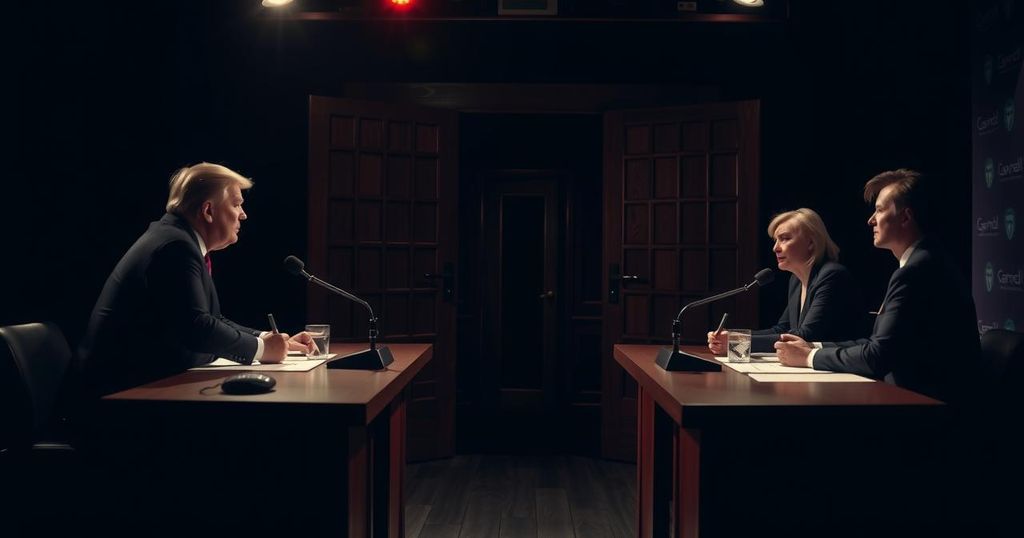Colorado’s Reformative Journey: A Shift Towards Nonpartisan Elections in 2024

Colorado voters will decide on a significant electoral reform proposal, transitioning to a nonpartisan top-four primary system. This change, backed by business interests and contested by state parties, could impact congressional races and voter participation, reflecting a broader national trend in electoral adjustments across several states. The debate showcases divisions within political factions regarding the implications of these reforms.
The 2024 election debate in Colorado has shifted away from its status as a presidential battleground to focus on significant electoral reforms. Voters in Colorado will be presented with a transformative proposal to revise the state’s election system, shifting from traditional partisan primaries to a proposed nonpartisan top-four primary system. This initiative, which is gaining traction among prominent business entities while facing opposition from state political parties, aims to overhaul how congressional races are conducted. Colorado is one of several states—including Nevada, Arizona, Idaho, Montana, South Dakota, Oregon, and Washington, D.C.—considering major reforms to electoral processes in response to increasing voter and donor discontent regarding the current political system. The proposed changes in Colorado include not only open primaries but also the implementation of ranked-choice voting during general elections, drawing both advocacy and criticism. Advocates argue that such reforms could enhance voter engagement and foster a more substantive legislative process, whereas detractors contend that they could lead to confusion and increased influence of dark money in elections. The political landscape regarding these reforms is notably polarized, with both major parties in Colorado expressing opposition, despite support from influential figures, including the state’s Democratic governor and several mayors. Democratic Senator Michael Bennet articulated skepticism, stating, “In the time that I’ve represented Colorado, I’ve never had a single person, not one person, come up to me and say this is the way we should change our system.” In contrast, Senator John Hickenlooper supports the reforms, labeling them a potential “win-win” for voter participation. Former Congressman Ken Buck sees the reform as an opportunity to revitalize Republican competitiveness in a predominantly Democratic state. Nevertheless, concerns remain regarding the influence of affluent donors in this new political framework. Bennet pointedly criticized the motivations of wealthy interests backing these changes, labelling it a manipulation of the democratic process. The ongoing discussions about the proposed changes are reflective of broader electoral trends seen in other states, including Alaska, where variations of top-four primaries have been implemented. Observations from such states suggest that crucial candidate selection dynamics are affected, with implications for the balance of power among political parties. As Colorado approaches these potential electoral reforms, they are set to influence competitive elections occurring as soon as 2026 or 2028, as political stakeholders and citizens alike grapple with the ramifications of altering the voting system in a swing state.
The upcoming 2024 election debate in Colorado signals a significant transformation in electoral politics as the state pivots from presidential battleground status to focusing on intricate reforms to its election system. The current political discourse highlights a profound shift from the conventional partisan primary elections to a novel nonpartisan top-four primary model, reflecting both a response to voter dissatisfaction and an effort to redefine political accountability. This shift involves various states also considering similar electoral changes, indicating a broader national dialogue about the future of voting in the United States. Colorado’s unique demographic and political landscape sets the stage for testing the efficacy of these new systems, which may reshape the traditional dynamics of both major parties.
In conclusion, the impending changes to Colorado’s electoral system represent a pivotal moment in the state’s political evolution. The proposed nonpartisan top-four primary and ranked-choice voting illustrate a growing trend to reform traditional voting mechanisms, aiming to improve voter participation and reduce the influence of extreme political elements. However, the complexities and potential repercussions of such changes raise valid concerns among political leaders and citizens alike, sparking a critical dialogue about the future of inclusive and representative democracy in Colorado and beyond.
Original Source: www.semafor.com







